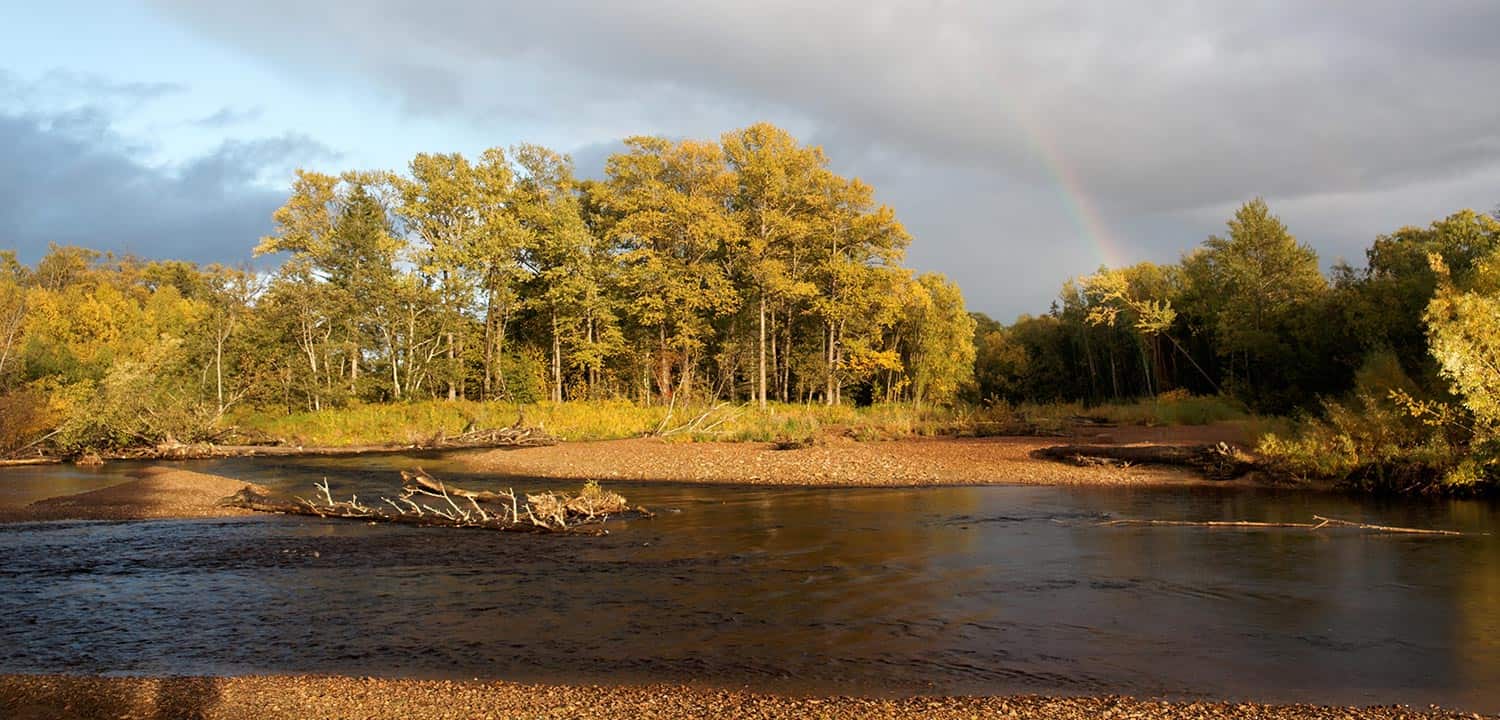Collaboration yielding results in environmental education, outreach, and anti-poaching efforts.

Initial results from public salmon council activity and our Russian partners on the ground are showing a banner year for education, outreach, and anti-poaching efforts. Sakhalin Environment Watch (SEW) has been leading the way, conducting spawning escapement surveys across Sakhalin Island, including the Vostochny Reserve. In total, over 200 surveys were conducted on at least 60 rivers on Sakhalin. One positive outcome was the removal of six weirs that were blocking salmon migration. Overall, weir installment on salmon rivers dropped by 60% between 2009 and 2013.
Kamchatka and Sakhalin Cossack communities are becoming more active in the councils. In Western Sakhalin, the local Cossack community is teaming up with the Uglegorsk public salmon council to patrol salmon rivers for illegal activity. Photo by Anastasia Fomina.
The Sakhalin Environment Watch was also critical in getting a long-term conservation project launched for taimen. The Nabil River watershed is one of the last large-scale intact ecosystems on the Island and home to several species of salmonids, including the critically endangered Sakhalin taimen. SEW is working to increase anti-poaching initiatives and help create a regional protected area in the Nabil River Watershed. In 2013 SEW led anti-poaching raids on 29 rivers in ten districts across Sakhalin in partnership with public salmon councils and local authorities.

On Sakhalin’s west coast, the Uglegorsk public salmon council and the local Cossack community have initiated a formal anti-poaching partnership. In 2013 the council organized 27 anti-poaching raids on five rivers covering over 450 miles by foot, boat, and car. The efforts of these volunteer brigades who work closely with local enforcement, coupled with community education, has proven highly effective against illegal fishing. The Uglegorsk council members also held two exchanges, including a field training seminar for middle and high school students from a local orphanage, and an exchange co-lead by the Aniva council on monitoring and anti-poaching techniques.
In southern Sakhalin, outreach efforts to increase awareness of harmful and illegal fishing practices by the Aniva public salmon council have had a great impact. Council volunteers conducted 110 anti-poaching raids on ten rivers in the Aniva district over the course of the fishing season. Over 12,000 miles were covered by vehicle, about 350 miles on boat and, more than 65 miles of rivers were inspected by foot. As a result, the total number of poachers has notably decreased overall compared to the previous year and commercial-scale poaching has been nearly eliminated on several rivers, including the Langry.
In addition, local commercial fishing companies are now working with the salmon council to expand legal access to local fish resources. Subsistence poaching has been a major problem in places like the Aniva and Smirnykh districts. To address this, there has been a greater effort to promote the use of recreational fishing licenses and the number of anglers fishing with spinning or fly rods has significantly increased in the last year.
Hero Image
